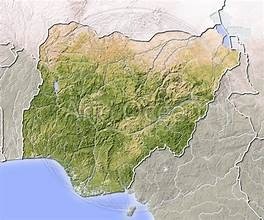
It is necessary to think outside the box and consider some cutting-edge tools and concepts to help Nigeria out of this unfortunate situation now that there is a heated debate about palliatives as a tool to cushion the negative impact of the removal of petroleum subsidy on the generality of Nigerians, particularly the low-income earners of Nigeria’s society.
The Universal Basic Income (UBI) is one of these innovative tools. UBI is a regular cash transfer sent to every person in a community with no strings attached. a regular, unconditional, and universal cash payment.
For the avoidance of doubt, from an economic perspective, subsidizing is not a terrible idea in and of itself. Over the years, it has only been abused in Nigeria. Around the world, subsidies are a fairly popular method of addressing socioeconomic issues.
“A benefit provided to an individual, company, or organization is known as a subsidy. It may be immediate (like cash rewards) or indirect (like tax benefits). The subsidy is often provided to alleviate some sort of hardship, and it is frequently seen as being provided in the public’s best interests to advance a social good or economic goal. According to this definition, important matters to pay attention to include the following: A subsidy is a direct or indirect payment made by the government, typically in the form of cash, to people or businesses.
According to economic theory, subsidies can be used to reduce externalities and market imperfections to boost economic efficiency.
Subsidies are disliked because of issues with determining the correct amount, dealing with hidden costs, and preventing political incentives from making subsidies more costly than helpful.
The rise of rent seekers, who ultimately become so dominant that the overall benefit to society is eliminated, can also lead subsidies to become extremely costly for the economy. With our fuel subsidy for the last 30 to 40 years, Nigeria has experienced this.
Subsidizing corrupt political processes encourages them.
Let’s return to the topic of using UBI as a tool for the palliatives that the President Bola Ahmed Tinubu (PBAT) administration is proposing to lessen the suffering of Nigerians as a result of the termination of petroleum subsidies in Nigeria. As we’ve already mentioned, universal basic income (UBI) is a regular cash payment made to every member of a community or society (in this example, Nigeria) with no strings attached. In other words, a universal, unconditional, and consistent cash reward for each individual.
The ongoing expansion of income and wealth disparities, the instability of our labor market, and the existence of extreme poverty in the nation make UBI important in Nigeria today.
UBI’s fundamental qualities include periodicity and recurrence; it is often paid on a monthly basis. Nigerians have the ability to instantly exchange their benefits for whatever they choose by paying in cash. Universal means that it is given to everyone and is not intended for a particular group of people. Individual – it is paid on an individual basis rather than a household basis. Unconditional – there are no work requirements or penalties, so both people who work and those who do not, whether voluntarily or involuntarily, can use it.
Next up for consideration are the financing source, payment amount, payment frequency, and policy package that will accompany the introduction of UBI. The amount of our existing GDP that will collectively be devoted to UBI must be determined. It can be anything between 5% and 7% of our GDP. Models can be created to determine the ideal overall percentage of our GDP to dedicate. We highly advise the government to take N25,000 per month into consideration.
There are numerous approaches to finance UBI. Income tax, wealth tax, consumption tax, financial transaction tax, and most recently carbon tax revenue can all be used to pay for it. These may all work together to provide money for the UBI. The elimination of petroleum subsidies in Nigeria has led to significant monthly savings. The UBI can be funded from the proceeds from the savings.
The policy package needs to be decided, and that’s the last thing. When making interventions to counter the potential inflationary effects of UBI, the government must take the supply side into account. Food security, energy security, and effective and efficient transportation networks must all be part of these interventions.
Nigeria needs to quickly expand its agricultural sector so that the problem of food security is properly addressed. The government needs to produce more grains, veggies, peppers, and low-cost protein sources right away.


Share your thoughts